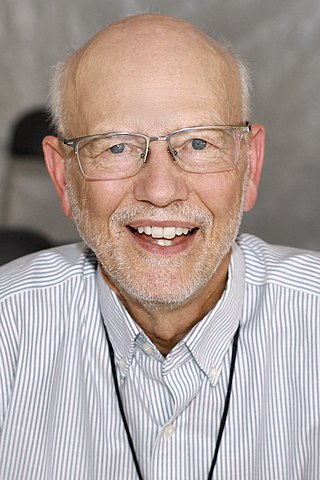Related Research Articles

Claremont is a suburban city on the eastern edge of Los Angeles County, California, United States, 30 miles (48 km) east of downtown Los Angeles. It is in the Pomona Valley, at the foothills of the San Gabriel Mountains. As of the 2010 census it had a population of 34,926, and in 2019 the estimated population was 36,266.

The Claremont Colleges are a consortium of seven private institutions of higher education located in Claremont, California, United States. They comprise five undergraduate colleges —Pomona College, Scripps College, Claremont McKenna College (CMC), Harvey Mudd College, and Pitzer College—and two graduate schools—Claremont Graduate University (CGU) and Keck Graduate Institute (KGI). All the members except KGI have adjoining campuses, together covering roughly 1 sq mi (2.6 km2).

Pomona College is a private liberal arts college in Claremont, California. It was established in 1887 by a group of Congregationalists who wanted to recreate a "college of the New England type" in Southern California. In 1925, it became the founding member of the Claremont Colleges consortium of adjacent, affiliated institutions.

The Southern California Intercollegiate Athletic Conference (SCIAC) is a college athletic conference that operates in the NCAA's Division III. The conference was founded in 1915 and it consists of twelve small private schools that are located in southern California and organized into nine athletic programs. Claremont-Mudd-Scripps and Pomona-Pitzer are combined teams for sports purposes.

Scripps College is a private liberal arts women's college in Claremont, California. It was founded as a member of the Claremont Colleges in 1926, a year after the consortium's formation. Journalist and philanthropist Ellen Browning Scripps provided its initial endowment.

Pitzer College is a private liberal arts college in Claremont, California. One of the Claremont Colleges, the college has a curricular emphasis on the social sciences, behavioral sciences, international programs, and media studies. Pitzer is known for its social justice culture and experimental pedagogical approach.

Kenneth Sanborn Pitzer was an American physical and theoretical chemist, educator, and university president. He was described as "one of the most influential physical chemists of his era" whose work "spanned almost all of the important fields of physical chemistry: thermodynamics, statistical mechanics, molecular structure, quantum mechanics, spectroscopy, chemical bonding, relativistic chemical effects, properties of concentrated aqueous salt solutions, kinetics, and conformational analysis."

Claremont McKenna College (CMC) is a private liberal arts college in Claremont, California. It has a curricular emphasis on government, economics, public affairs, finance, and international relations. CMC is a member of the Claremont Colleges consortium.

The Student Life is a student newspaper covering the Claremont Colleges, a consortium of liberal arts colleges in Claremont, California. It is published weekly each Friday during the academic year, typically spans roughly ten pages per issue, and is primarily funded by the student governments of the colleges.
KSPC is a non-commercial college and community radio station based in Claremont, California, broadcasting at 88.7 MHz on the FM band and streaming online. It was founded in 1956 as a Pomona College student organization and later expanded to the other Claremont Colleges (7Cs). KSPC is funded by the Associated Students of Pomona College and other 7C student associations.
Herrick Chapman is a prominent historian of France. Since 1992 he has been employed at New York University, where he is Professor of History in the Department of History and Institute of French Studies. Professor Chapman was educated at the University of California, Berkeley and Princeton University.

The Claremont-Mudd-Scripps Stags (men) and Athenas (women) is the joint intercollegiate sports program of Claremont McKenna College, Harvey Mudd College, and Scripps College, all located in Claremont, California. The teams participate in the NCAA's Division III as a member of the Southern California Intercollegiate Athletic Conference.
John William Atherton was an American poet, professor, and the founding president of Pitzer College.
Bruce J. Schulman is an American historian, currently the William E. Huntington Professor at Boston University. From 2022-23, Schulman served as the Harmsworth Visiting Professor of American History at The Queen's College, Oxford.

Pomona-Pitzer Sagehens is the joint varsity intercollegiate athletics program for Pomona College and Pitzer College, two of the Claremont Colleges. It competes with 11 women's and 10 men's teams in the Southern California Intercollegiate Athletic Conference (SCIAC) of the NCAA Division III.
Melvin L. Oliver is an American academic administrator and professor serving as the sixth president of Pitzer College. He is the first African American to become president of one of the Claremont Colleges.

Numerous traditions have been established at Pomona College, a highly selective liberal arts college in Claremont, California, since its founding in 1887. They have varying levels of popularity, longevity, and institutional recognition. Taken together, they are a significant component of the school's culture and identity, promoting social cohesion among students and other community members.

Franklin Lubbock "Char" Miller IV is an American historian and environmental analysis scholar. He is the W.M. Keck Professor of Environmental Analysis and History at Pomona College and the director of the Claremont Colleges' environmental analysis program.

Jean Brosius Walton was an American academic administrator and women's studies scholar. She spent the bulk of her career at Pomona College in Claremont, California.
References
- 1 2 "Gary Kates". Pomona College. June 2015. Retrieved January 18, 2021.
- ↑ Frankel, Julia; Hoving, Becky (May 3, 2019). "Eight high-level admins leave Pomona under Starr". The Student Life . Retrieved January 18, 2021.
- 1 2 3 4 5 6 7 8 "What's Next for Dean Kates?" (PDF). Pomona College Magazine. No. Spring 2009. Pomona College. p. 14. Retrieved January 23, 2021.
- 1 2 Zukin, Meg (February 21, 2015). "The Claremont Comeback: 5C Alumni Return to Teach". The Student Life . Retrieved January 18, 2021.
- ↑ Doherty, Aidan (April 13, 2001). "Gary Kates Named New Dean of College". The Student Life . Archived from the original on August 29, 2008. Retrieved April 17, 2021.
- 1 2 Bernstein, Richard (July 31, 1995). "Books of the Times; Enigma of a Nobleman, Pretender to Femininity". The New York Times . Retrieved January 18, 2021.
- ↑ Darnton, Robert (August 10, 1995). "Cherchez la Femme". The New York Review of Books . Retrieved January 18, 2021.
- ↑ Spatt, Mindy (November 12, 1995). "A Cross-Dressing Spy in the Court of Louis XV". San Francisco Examiner . pp. 221, 225. Retrieved January 23, 2021– via Newspapers.com.
- ↑ "2001". Pomona College Timeline. Pomona College. September 15, 2020. Retrieved January 23, 2021.
- ↑ "ID 001 PO (UG19) 10 - The European Enlightenment". Pomona College. Retrieved March 1, 2021.
- ↑ "Gary Kates at Pomona College". RateMyProfessors.com . Retrieved February 7, 2021.
- ↑ "Nancy Lyman Roelker Mentorship Award Recipients". American Historical Association . Retrieved January 23, 2021.
- 1 2 3 "Best Friends for Life". Pomona College Magazine. Vol. 58, no. 2. Pomona College. July 25, 2022. Retrieved December 5, 2022.
- 1 2 Thomsen, Marilyn; Vest, Patty (November 16, 2022). "The European Enlightenment and French Revolution with Prof. Gary Kates". Sagecast (Podcast). Pomona College. Retrieved November 23, 2022.